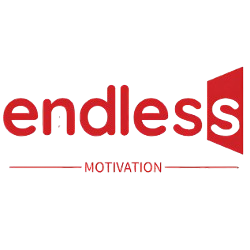We live in a world that teaches us how to achieve, how to succeed, how to please others—but rarely teaches us the most fundamental skill of all: how to love ourselves. We master the art of outward accomplishment while our inner world becomes a battlefield of criticism and doubt.
What if I told you that the secret to transforming your relationship with yourself lies not in complicated techniques or expensive therapies, but in the simple, profound power of words? Specifically, the right words delivered at the right moment.
This is not just another collection of “feel-good” quotes. This is a practical guide to cognitive restructuring—using the wisdom of ages to literally rewire your brain. We’re going to move beyond inspiration and into implementation, exploring how carefully chosen phrases can become the tools that dismantle your inner critic and build a foundation of unshakable self-worth.
The Problem: Why Your Brain is Wired for Self-Criticism (And How to Fix It)
Before we dive into the solution, it’s crucial to understand the problem. Your brain has a natural negativity bias—it’s like Velcro for bad experiences and Teflon for good ones. This was a brilliant survival mechanism for our ancestors (“Remember that saber-toothed tiger?”) but a terrible design for modern happiness.
This bias means:
- One critical comment outweighs ten compliments
- Your mistakes play on a loop while your successes fade quickly
- Your inner critic feels like “the truth” rather than a biased perspective
The quotes in this guide are specifically chosen as antidotes to this wiring. They are cognitive interventions—mental floss to clean between your programmed thoughts.
The Methodology: How to Use These Quotes for Maximum Impact
Reading a quote passively is like reading a recipe without cooking the meal. The magic happens in the application. Here’s how to make these words work for you:
- Identify Your Trigger: What specific situation activates your inner critic? (e.g., making a mistake, seeing a “perfect” social media post, receiving feedback).
- Select Your Antidote: Choose a quote that directly counters that specific critical thought.
- Practice Conscious Replacement: When the trigger occurs, consciously replace the automatic negative thought with the chosen quote. Write it down. Say it out loud.
- Feel the Shift: Notice the physiological change. Does your shoulder tension ease? Does your breathing deepen? This is neuroplasticity in action.
Ready for the transformation? Let’s begin.
Phase 1: The Emergency Toolkit – Quotes for When You’re Struggling
These are your first-aid responses for moments of acute self-doubt, shame, or overwhelm.
For the Inner Critic’s Attack:
“You have been criticizing yourself for years and it hasn’t worked. Try approving of yourself and see what happens.” – Louise Hay
Why it works: This isn’t fluffy encouragement—it’s a strategic insight. Your self-criticism is a failed system. This quote invites you to run an experiment: what if approval works better than criticism? It frames self-love as a practical solution rather than an emotional one.
Action Step: The next time you catch yourself in a spiral of criticism, literally say out loud: “This strategy isn’t working. I’m trying something new.” Then replace the criticism with one specific approval.
For Feeling Overwhelmed by Mistakes:
“Forgiveness is giving up the hope that the past could have been any different.” – Oprah Winfrey
Why it works: This quote brilliantly reframes forgiveness from something weak to something profoundly practical. The energy you spend wishing things were different is energy stolen from your present. This isn’t about condoning mistakes; it’s about reclaiming your power.
Action Step: Identify one past mistake you still mentally punish yourself for. Write this quote on a notecard and place it where you’ll see it daily until the emotional charge diminishes.
For Comparison and “Not Enoughness”:
“The reason we struggle with insecurity is because we compare our behind-the-scenes with everyone else’s highlight reel.” – Steven Furtick
Why it works: This isn’t just comforting—it’s true. Neuroscience confirms that comparing your internal experience to others’ external presentation creates inevitable psychological distress. This quote gives you the cognitive key to unlock the comparison trap.
Action Step: When you find yourself scrolling through social media and feeling “less than,” literally say to yourself: “I am comparing my reality to their performance.” Notice how the feeling shifts.
Phase 2: The Foundation Builders – Quotes to Rewire Your Core Beliefs
These quotes address the deeper, foundational beliefs that fuel day-to-day self-criticism.
For Core Self-Worth:
“You yourself, as much as anybody in the entire universe, deserve your love and affection.” – Buddha
Why it works: This isn’t a suggestion; it’s a statement of fact from one of history’s greatest minds. The phrasing “as much as anybody in the entire universe” creates a powerful cognitive frame—it positions self-love as a universal right, not a personal achievement.
Action Step: Make this your daily mantra for one month. Say it while looking in the mirror each morning, regardless of whether you “feel” it. The repetition will create new neural pathways.
For Embracing Imperfection:
“We can’t hate ourselves into a version of ourselves we can love.” – Lori Deschene
Why it works: This quote exposes the fundamental flaw in the self-improvement industry’s messaging. If shame worked as a motivator, we’d all be perfect by now. This is the permission slip to pursue growth from love rather than fear.
Action Step: Identify one thing you dislike about yourself and have been trying to “fix” through self-criticism. Experiment with accepting it for one week while using this quote as a reminder.
For Setting Boundaries:
“Self-love is the greatest middle finger of all time.” – Unknown
Why it works: Sometimes, gentle wisdom doesn’t cut it. This quote gives you permission to access your anger—the healthy anger that says “no more” to people and situations that drain you. It reframes self-love as power rather than passivity.
Action Step: Identify one boundary you’ve been afraid to set. Write down what you want to say, then preface it in your mind with: “This is me choosing myself.”
Phase 3: The Advanced Training – Quotes for Living Authentically
Once you’ve stabilized your foundation, these quotes will help you step into your fullest expression.
For Finding Your Path:
“Your task is not to seek for love, but merely to seek and find all the barriers within yourself that you have built against it.” – Rumi
Why it works: This is perhaps the most sophisticated understanding of self-love ever expressed. The love you seek is already within you—the work is demolition, not construction. This changes the entire orientation from “What’s wrong with me?” to “What’s blocking me?”
Action Step: Journal for 15 minutes answering this question: “What are the specific thoughts, beliefs, or fears that act as barriers to me experiencing self-love right now?”
For Courage and Authenticity:
“She remembered who she was and the game changed.” – Lalah Delia
Why it works: This quote captures the moment of transformation perfectly. Self-love isn’t about becoming someone new; it’s about remembering who you’ve always been beneath the conditioning and criticism. The “game changes” because your fundamental relationship to reality shifts.
Action Step: Write a letter to yourself from the perspective of your 8-year-old self. What did that child love? What felt natural and easy? This is a powerful way to “remember who you were.”
The Science Behind Why This Works
This approach isn’t just philosophical—it’s neurological. Here’s what’s happening in your brain when you practice this method:
- Cognitive Reframing: You’re literally creating new neural pathways that bypass your brain’s default negative networks.
- Neuroplasticity: Every time you consciously replace a critical thought with a compassionate one, you strengthen that new pathway, making it increasingly automatic.
- Reduced Amygdala Activation: Self-compassion practices have been shown to decrease activity in the amygdala (your brain’s fear center), physically reducing anxiety.
Creating Your Personal Self-Love Lexicon
Now it’s your turn. Don’t just read these quotes—make them yours.
- Identify Your Top 3: Which quotes resonated most powerfully? Write them down separately.
- Contextualize Them: For each quote, identify the specific situation or trigger where you’ll use it.
- Make Them Accessible: Put them in your phone notes, on your mirror, as your screensaver.
- Practice Daily: Spend 2 minutes each morning reading your chosen quotes and visualizing yourself using them during the day.
The Ripple Effect: How Your Self-Love Changes Everything
When you change your relationship with yourself, you change your relationship with everything:
- Your Work: You’ll operate from confidence rather than fear of failure
- Your Relationships: You’ll attract healthier people and set clearer boundaries
- Your Resilience: Challenges become opportunities for growth rather than proof of inadequacy
- Your Joy: You’ll experience more moments of genuine presence and contentment
The Journey Forward
This isn’t about achieving perfection. It’s about progression. Some days, self-love will feel natural; other days, it will feel like a conscious choice. Both count. The goal isn’t to eliminate all self-doubt but to develop a loving voice that speaks louder than the doubt.
The most profound relationship of your life is waiting to be discovered—the one with yourself. These quotes are your map, but you are the traveler. The journey of a thousand miles begins with a single, kind thought.
Your Turn: Which quote from this guide landed with the most impact for you right now? Share in the comments one small action you’ll take today to turn those words into your reality. Your journey inspires ours.

